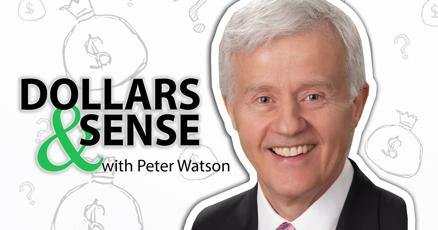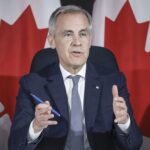The fluorescent light flickers overhead as Marie Duchesne reviews her monthly budget for the third time. The 38-year-old Vancouver marketing specialist has witnessed her grocery bills climb nearly 20% over the past year while her mortgage renewal looms with interest rates double what she secured five years ago. Marie isn’t alone—financial anxiety has become the unwelcome roommate in millions of Canadian households.
“I used to think I was doing everything right,” Marie says, her voice tightening. “Now I’m dipping into savings just to maintain the same lifestyle, and I lie awake wondering if I should sell my condo before rates climb higher.”
Recent data from the Financial Consumer Agency of Canada reveals that 73% of Canadians report experiencing financial stress daily—a 12% increase from pre-pandemic levels. The cocktail of persistent inflation, housing costs, and economic uncertainty has transformed financial planning from a quarterly exercise into a constant source of anxiety.
Dr. Aisha Patel, financial psychologist at the University of British Columbia, explains the physiological impact: “Chronic financial stress triggers the same fight-or-flight responses as physical danger. We’re seeing increased cortisol levels, disrupted sleep patterns, and compromised decision-making among otherwise financially literate Canadians.”
The intersection of money and mental health has become increasingly evident in clinical settings. Mental health referrals citing financial stress as a primary contributor have increased 43% since 2021, according to the Canadian Mental Health Association.
Jordan Williams, senior financial advisor at RBC, notes a shift in client conversations: “Five years ago, discussions centered around optimization and growth. Today, they’re about survival and stability. Clients who never previously expressed anxiety are now bringing emotional concerns to every meeting.”
This reality cuts across demographic lines. While millennials struggle with housing affordability and student debt, Gen X faces sandwich generation pressures, caring for both aging parents and children while managing their own retirement preparations. Baby boomers watch retirement portfolios fluctuate while fixed incomes stretch thinner against inflation.
Financial experts recommend several concrete strategies for Canadians navigating this landscape. Farah Mahmood, certified financial planner with Desjardins, advocates for “financial breathing room” through emergency funds. “The psychological benefit of having even three months of expenses saved provides cognitive space to make better decisions. Start with $500 and build gradually—progress matters more than perfection.”
Beyond emergency savings, experts suggest conducting a “financial stress audit.” This involves identifying specific triggers—whether housing costs, debt servicing, or retirement concerns—and developing targeted responses rather than general anxiety about “money.”
“Break down vague financial worries into actionable items,” suggests Michael Rodriguez, consumer debt specialist at CO24 Business. “Canadians often experience ‘financial doom spiraling’ where all money concerns blend together. Separating immediate needs from long-term concerns creates mental clarity.”
Community-based solutions are emerging across the country. In Winnipeg, financial literacy workshops now include stress management techniques. Calgary credit unions have introduced “financial wellness checks” that address psychological aspects of money management alongside numerical planning.
Digital tools have evolved to address both practical and emotional aspects of financial management. Apps like Mint and YNAB now incorporate behavioral psychology principles, while Canadian fintech startup Mylo automatically rounds up purchases and invests the difference—removing decision fatigue from saving.
Government initiatives have expanded to acknowledge this reality. The Financial Consumer Agency of Canada recently launched resources specifically addressing financial stress management, recognizing that emotional barriers often prevent Canadians from implementing sound financial advice.
For Marie Duchesne, relief came through community. She joined a financial accountability group where members share both struggles and strategies. “Just knowing I’m not failing alone made a difference,” she says. “We celebrate small wins—paying down $200 in debt or negotiating a better insurance rate—and that positive reinforcement changes how I view my financial journey.”
As Canadians navigate this challenging landscape, experts emphasize that financial wellness requires both practical tools and psychological resilience. The most effective approaches address not just the numbers, but the human experience behind them.
“Financial peace isn’t just about spreadsheets,” Dr. Patel concludes. “It’s about creating a relationship with money that supports rather than undermines your well-being. In today’s economy, that’s both more challenging and more essential than ever.”
For more insights on financial management and economic trends affecting Canadians, visit CO24 Breaking News for the latest updates on interest rates, inflation, and government policies impacting household finances.























